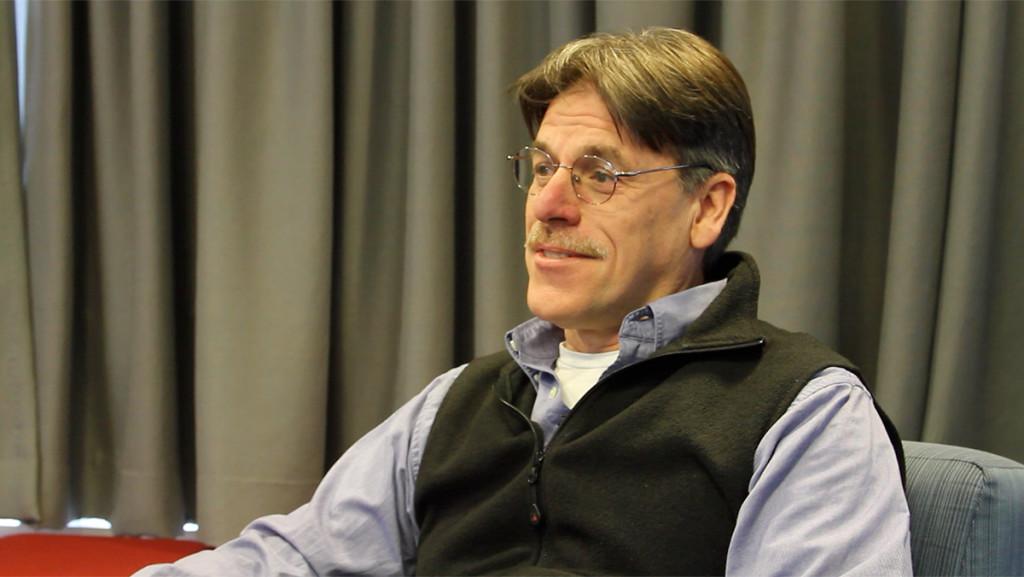Mark Darling, sustainability programs director in the Office of Energy Management and Sustainability, is retiring after a career at Ithaca College that began in 1987. Darling began his career at the college as a member of the grounds crew. He helped establish the recycling and composting programs at Ithaca College and has worked with students interested in sustainability issues and initiatives, most notably through the Resources and Environmental Management Program.
Jason Hamilton, chair of the environmental studies and sciences department and education director for the Ithaca College Natural Lands, said Darling has been hugely influential to the entire Ithaca Community. Hamilton said Darling was instrumental in establishing the ICNL as an organization.
“He was out there working on sustainability issues long before that word even existed,” Hamilton said. “Not only was he working on it, he was one of the ones who was kind of pioneering getting students involved.”
The college is currently interviewing three candidates to fill Darling’s position.
News Editor Faith Meckley and Staff Writer Jonah Swiatek spoke with Darling to reflect on his accomplishments and hear his insights about the past, present and future of sustainability at the college.
Jonah Swiatek: What would you say was the part of your job that you enjoyed the most?
Mark Darling: Being able to enable students. Being able to take someone’s passion and direct it a little bit.
Faith Meckley: Do you have any specific examples of that?
MD: The Comprehensive Environmental Policy that Sean Vormwald was involved with. He graduated in 2001. It was a way to start the conversation about sustainability before we called it that, but about greening campuses. He was a politics and environmental person, and he said we should have a policy. … I … shepherded that along.
FM: What was the part of your job that you liked the least?
MD: The bureaucracy. Just not having the access and the voice. I’m very excited about the shared governance discussions happening on campus and more involvement. This is not a democracy — it’s an enlightened dictatorship. It’s a model that … needs to change, particularly with sustainability. …This isn’t one person’s thing to do. This involves the entire community. … It’s everybody’s job.
JS: How do you think the college is doing currently in its quest to become a sustainable institution? Do you think there is anything we could be doing better?
MD: Because we’re Ithaca College, we always see what we don’t do, and we forget what we do do. There’s a ratings system for sustainability run by the Association for Advancement of Sustainability in Higher Education. They grade us. We’re gold. That’s like a B+. Could we do more? Yes. We’ve plateaued. We spent too much time worrying about affordability. We’ve forgotten about climate action. That balance is a hard thing to do because economy tends to trump all the decisions.
FM: Do you think that Ithaca College, in terms of sustainability progress, has put its money where its mouth is?
MD: Yes. You can’t discount what has been done with facilities, with energy efficiency, whether it’s driven by worrying about the carbon footprint or worry about affordability. Whatever the motivation is, the steps we’ve been taking are very progressive. We’ve had a robust and mature recycling program, including composting. We made the commitment to build LEED platinum buildings. We can’t just rest on that, but it definitely says … we’re committed to doing this — we’re going to put the money there. It could be a deeper commitment, and it needs to be restated with the whole community.
JS: In the near future, what do you think will be the greatest challenges facing the college in terms of progress on sustainability goals?
MD: Engagement of the entire community. The energy management and sustainability office is working on a strategic plan. That’s a big piece of it, and our stated goal is to integrate the principles of sustainability into the culture of the college.
FM: Is there anything that you didn’t finish, or didn’t get to in your time here, that you wish you could’ve if you’d had more time?
MD: There are things that my successor and the new director are picking up. One is the sustainability strategic plan.
JS: If you could give your successor one piece of advice, what would that be?
MD: I know a little about the candidates, and I’m fairly certain that they’ll figure it out. But I think understanding that this is a very old-fashioned, traditionalist, hierarchal organization, and we know in sustainability that these move slowly and are not capable — in their present form — of responding quickly enough in terms of changing direction around behaviors. Rather than waiting for permission … from higher up … figure out what you need to do before you even ask for the permission.
FM: What’s next for you?
MD: As little as possible. I’ll continue to be involved in sustainability from the local organic foods area. I’ve got some connections there. Do a little farming and stay involved with that. Just enjoying the Finger Lakes and all the rain we’re going to get.








